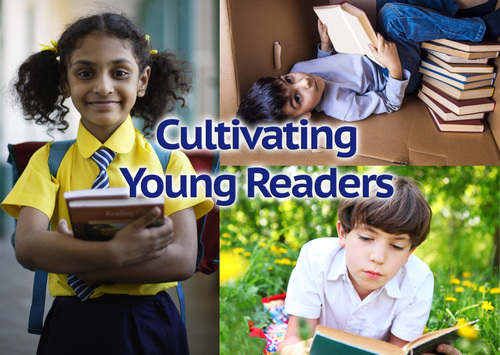
Summer is coming. Book lists are already online. En tant que parent, I was determined to cultivate a love of reading in my children. Reading is something I love to do and so I was committed to ensuring that my kids appreciate and understand the power of language to convey and express concepts. Language is the ultimate tool of humanity.
Notre Maître Bloggers mondial sont des pionniers et des innovateurs dans des domaines tels que l'intégration de la technologie, mathématiques entraîneur, besoins éducatifs spéciaux, l'enseignement des sciences, et de l'équité entre les sexes. Ils ont fondé des écoles, programmes écrits, et les salles de classe led 13 différents pays qui étendent à travers tous les continents peuplés sur terre. Ces enseignants habilitent et enrichissent la vie des jeunes de presque tous les milieux imaginables.
Aujourd'hui, dans La recherche globale pour l'éducation, notre Top Global Teacher Les blogueurs partagent leurs réponses à la question de ce mois-ci: How do we do a better job of cultivating young readers?
Rashmi Kathuria (@rashkath) from India recommends a method used by Anita Chadha, a teacher of English at Kulachi Hansraj Model School. She asks her students “to dramatize a particular scene or situation they read in the story.” Rather than read silently or aloud one student at a time, she has her students read the story as if it were a play. “…to my wonderment I discovered young actors and actresses.” En outre, students are encouraged to write scripts and create dialogues in their own words. Reading becomes something active and enjoyable rather than boring and passive. En Savoir Plus.
“We do not have a library at my school,” says teacher Dana Narvaisa (@dana_narvaisa) from Latvia, “but it has never been an excuse for us to avoid reading.” Dana notes that it is important to give students both a wide selection and chance to read during the school day. She says, “regular reading is essential and to make it a priority, we need to find time for it every day.” En Savoir Plus.
Scott natacha (@natacha_scott), Assistant Director of History and Social Studies for the Boston Public Schools, was recommended by Adam Steiner (steineredtech) ce mois. Natacha emphasizes that understanding the perspective and the experiences of students is key to choosing the right book. “Before the journey can begin, teachers must take the time to get to know their students. Truly understanding their background, des questions, and interests will allow access points for establishing connections to different content.” En Savoir Plus.
“Through language we control our lives,” notes Maarit Rossi (@pathstomath) Finlande. “A man without words does not solve math problems, explicate his existence, let alone feelings.” Et bien sûr,, we learn language by reading. Ce mois, Maarit joins Finnish literacy teacher Jaana Lindfors and librarian Pia Rahikainen to follow their 7th graders book talk and find how they work together to keep literacy vibrant. En Savoir Plus.
Elisa Guerra (@ElisaGuerraCruz) from Mexico cuts to the chase: “Let’s be straight,” elle note. You will never turn a kid into a reader if he does not like to read. You might get him to read – just to make the grade, avoid punishment or elude embarrassment. He might try to trick you out of reading by making excuses, whining or cheating. As soon as he gets the chance, he will ESCAPE…….” If Elisa’s observations resonate with you what should you do? En Savoir Plus.
“Cultivating Young Readers in Communities of Poverty” is the title of Nadia Lopez’ (@TheLopezEffect) inspiring blog on “getting children who struggle with phonics and comprehension to become excited about reading.” Encore “with a little hope” et 10 key strategies, Mott Hall Bridges Academy is creating a culture of literacy. En Savoir Plus.
“I was 19 when I completed Catcher in the Rye, my first full book,” says teacher Richard Wells (@EduWells) de Nouvelle-Zélande. Cette “unread college boy” brings a lot of personal experience and expertise to the challenge of cultivating the love of reading in his own classroom today. Don’t miss Richard’s 3 ideas for encouraging boy readers. En Savoir Plus.
Shaelynn Farnsworth (@shfarnsworth), based in Conrad, Iowa, was recommended this month by our Blogger at Large Beth Holland (brholland). Shaelynn notes there is no “silver bullet” which will motivate every student to read and that it’s often a blend of different strategies. She believes that “a well-informed and observant teacher can focus their instruction and differentiate content to meet the needs of all students.” actions Shaelynn 3 reading motivations to target for cultivating young readers: Interest, Dedication, and Confidence. En Savoir Plus.
Parental involvement is absolutely critical, dit Vicki Davis (coolcatteacher) de Camilla, Géorgie. Vicki shares a wonderful story of how she ignited a love of reading with her own children. “I would yawn, stretch my arms, and say, you know what? I’m really tired. I would hear howls from the backseat…..Si, I would turn around and say…” En Savoir Plus.
En Sierra Leone, Miriam Mason-Sesay (@EducAidSL) is creating a culture of story-telling by conveying reading as an adventure. None of the 17 different local languages in her country are traditionally written. This means that children do not grow up with books. Engagement with the written word has to be very carefully and methodically cultivated. “Success is pointed out and celebrated. Exciting books are read to the children and they are then encouraged to read them together in small groups on their own again later. The children use Inge Wilson’s ‘Tales Toolkit’ to tell each other exciting stories and then write them up…” En Savoir Plus.
Todd Finley (finleyt) à Greenville, North Carolina emphasizes that while reading alone is very important, reading together is crucial. “Reading is a social experience. We read because important members of our community model the practice and make it a priority…. En fin de compte, writes C.S. Lewis, ‘We read to know we are not alone’.” En Savoir Plus.
Craig Kemp (mrkempnz) in Singapore shares his 2 easy ways to cultivate young readers but emphasizes that teachers should be role models. They should not only teach reading but engender a love of literature by way of example. “If we want our students to love reading, we need to love reading.” En Savoir Plus.
The Top Global Teacher Bloggers is a monthly series where educators across the globe offer experienced yet unique takes on today’s most important topics. CMRubinWorld utilise la plate-forme pour propager les voix des personnes les plus indispensables de nos établissements d'enseignement – enseignants.
(La photo est une gracieuseté de CMRubinWorld)
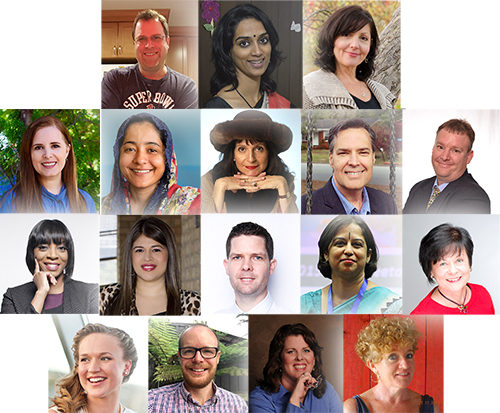
Warren Sparrow
Rashmi Kathuria, Maarit Rossi

Rejoignez-moi et leaders d'opinion de renommée mondiale dont Sir Michael Barber (Royaume-Uni), Dr. Michael Bloquer (États-Unis), Dr. Leon Botstein (États-Unis), Professeur Clay Christensen (États-Unis), Dr. Linda Darling-Hammond (États-Unis), Dr. MadhavChavan (Inde), Le professeur Michael Fullan (Canada), Professeur Howard Gardner (États-Unis), Professeur Andy Hargreaves (États-Unis), Professeur Yvonne Hellman (Pays-Bas), Professeur Kristin Helstad (Norvège), Jean Hendrickson (États-Unis), Professeur Rose Hipkins (Nouvelle-Zélande), Professeur Cornelia Hoogland (Canada), Honorable Jeff Johnson (Canada), Mme. Chantal Kaufmann (Belgique), Dr. EijaKauppinen (Finlande), Le secrétaire d'Etat TapioKosunen (Finlande), Professor Dominique Lafontaine (Belgique), Professeur Hugh Lauder (Royaume-Uni), Seigneur Ken Macdonald (Royaume-Uni), Professeur Geoff Masters (Australie), Professeur Barry McGaw (Australie), Shiv Nadar (Inde), Professeur R. Natarajan (Inde), Dr. PAK NG (Singapour), Dr. Denise Pape (États-Unis), Sridhar Rajagopalan (Inde), Dr. Diane Ravitch (États-Unis), Richard Wilson Riley (États-Unis), Sir Ken Robinson (Royaume-Uni), Professeur Pasi Sahlberg (Finlande), Professeur Manabu Sato (Japon), Andreas Schleicher (PISA, OCDE), Dr. Anthony Seldon (Royaume-Uni), Dr. David Shaffer (États-Unis), Dr. Kirsten immersive, (Norvège), Chancelier Stephen Spahn (États-Unis), Yves Thézé (LyceeFrancais États-Unis), Professeur Charles Ungerleider (Canada), Professeur Tony Wagner (États-Unis), Sir David Watson (Royaume-Uni), Professeur Dylan Wiliam (Royaume-Uni), Dr. Mark Wormald (Royaume-Uni), Professeur Theo Wubbels (Pays-Bas), Professeur Michael Young (Royaume-Uni), et le professeur Zhang Minxuan (Chine) alors qu'ils explorent les grandes questions d'éducation de l'image que toutes les nations doivent faire face aujourd'hui.
La recherche globale pour l'éducation communautaire page
C. M. Rubin est l'auteur de deux séries en ligne largement lecture pour lequel elle a reçu une 2011 Upton Sinclair prix, “La recherche globale pour l'éducation” et “Comment allons-nous savoir?” Elle est également l'auteur de trois livres à succès, Y compris The Real Alice au pays des merveilles, est l'éditeur de CMRubinWorld, et est une fondation perturbateurs Fellow.
Suivez C. M. Rubin sur Twitter: www.twitter.com/@cmrubinworld

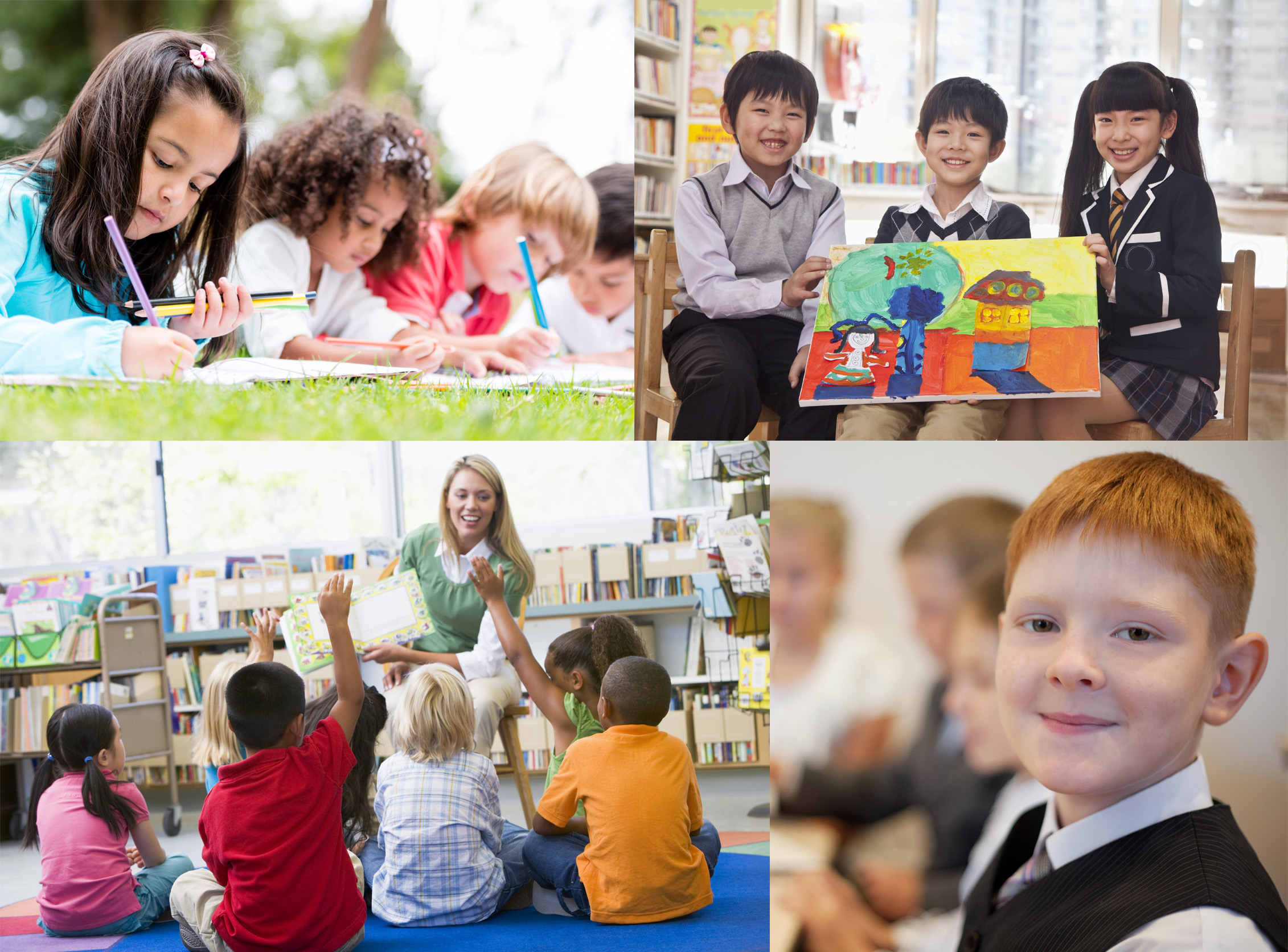
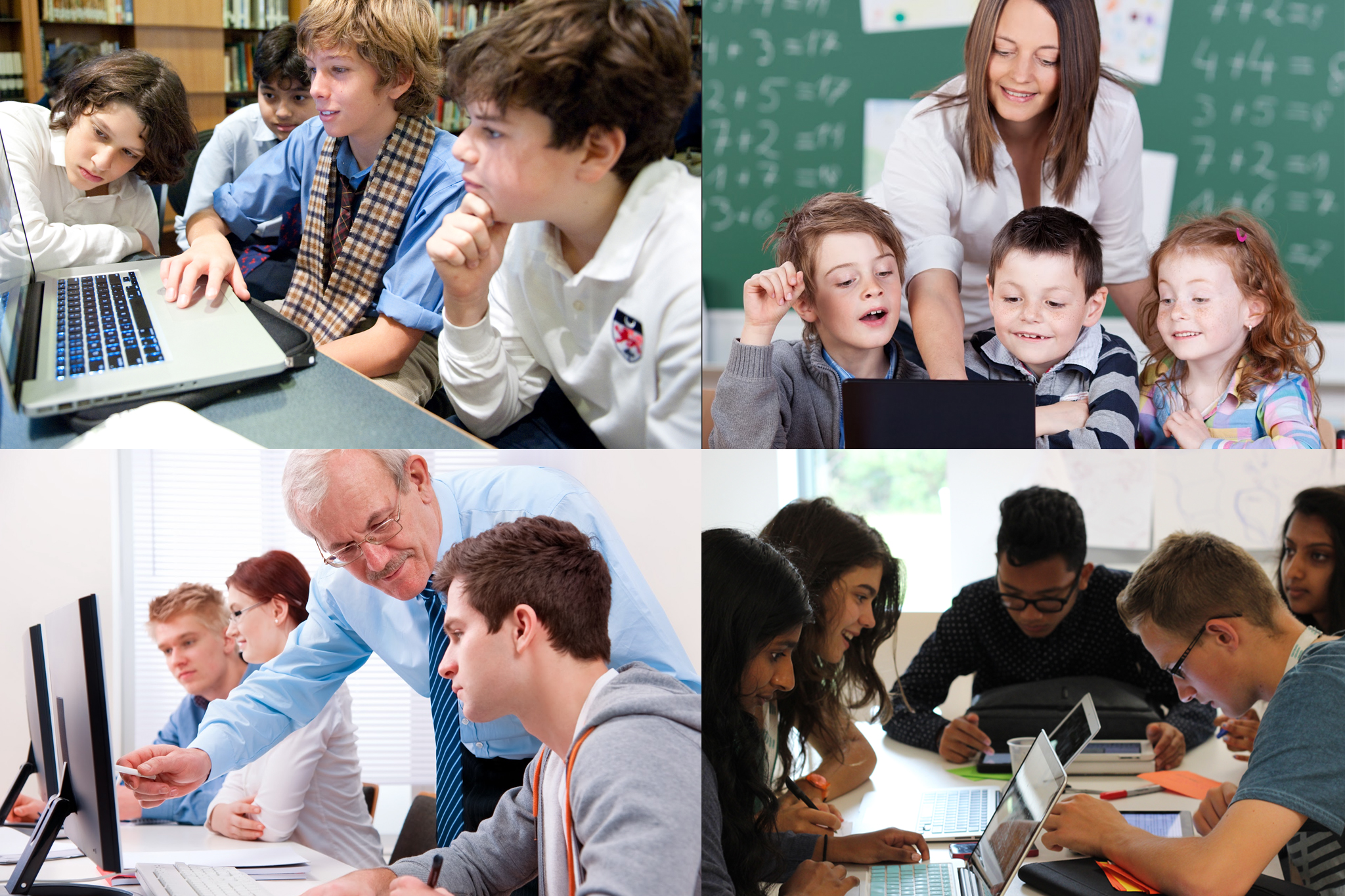
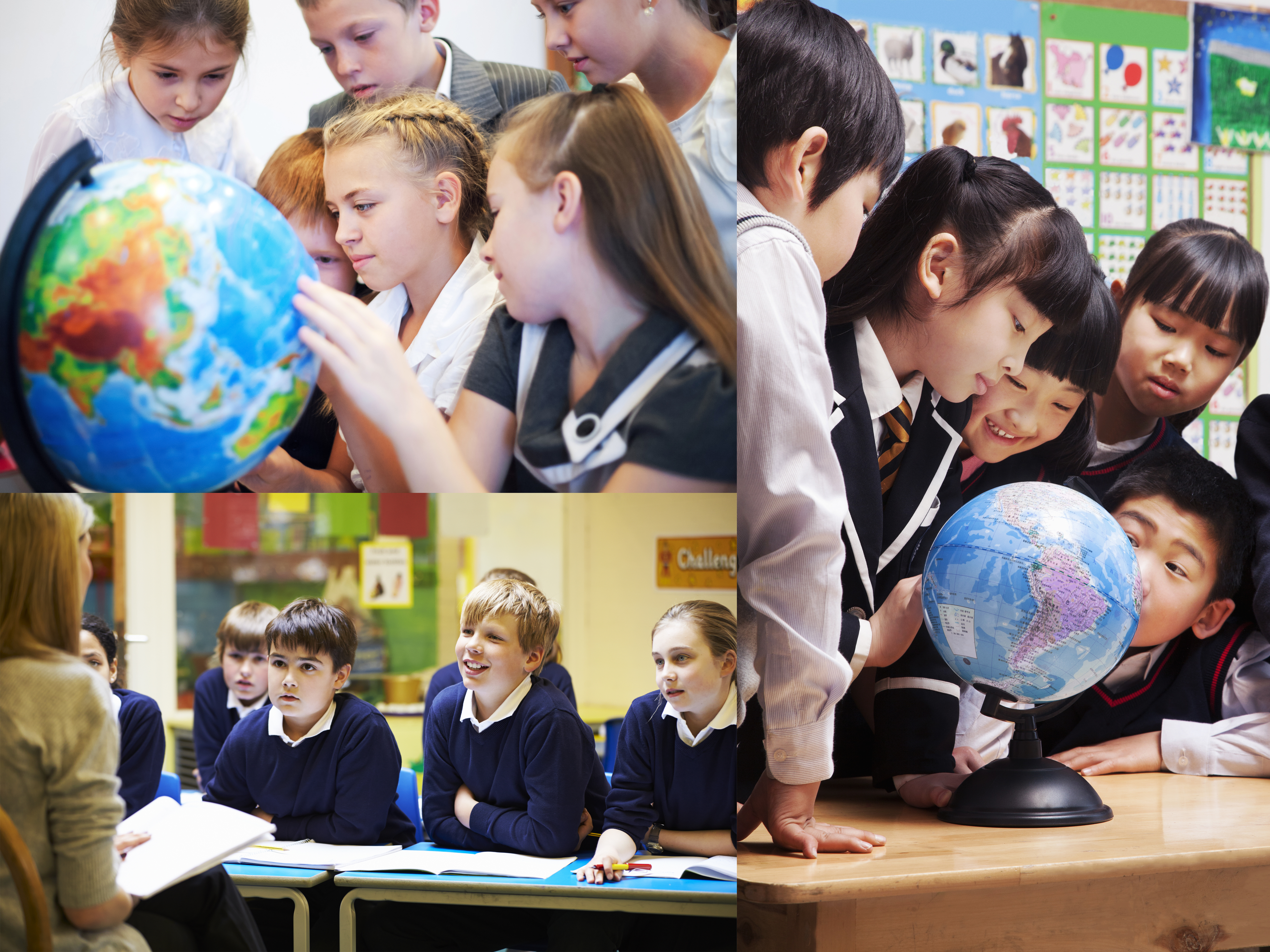

Commentaires récents